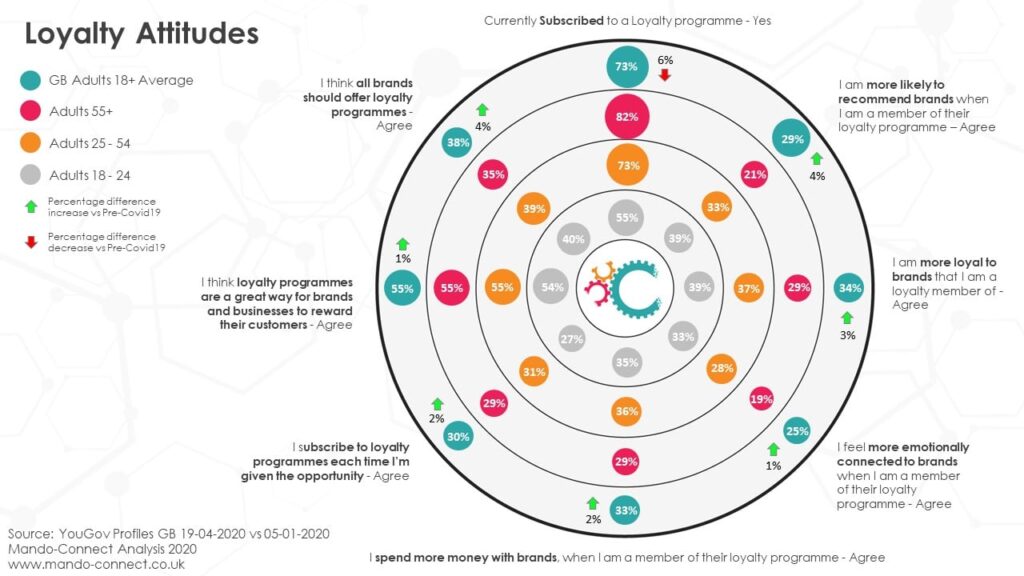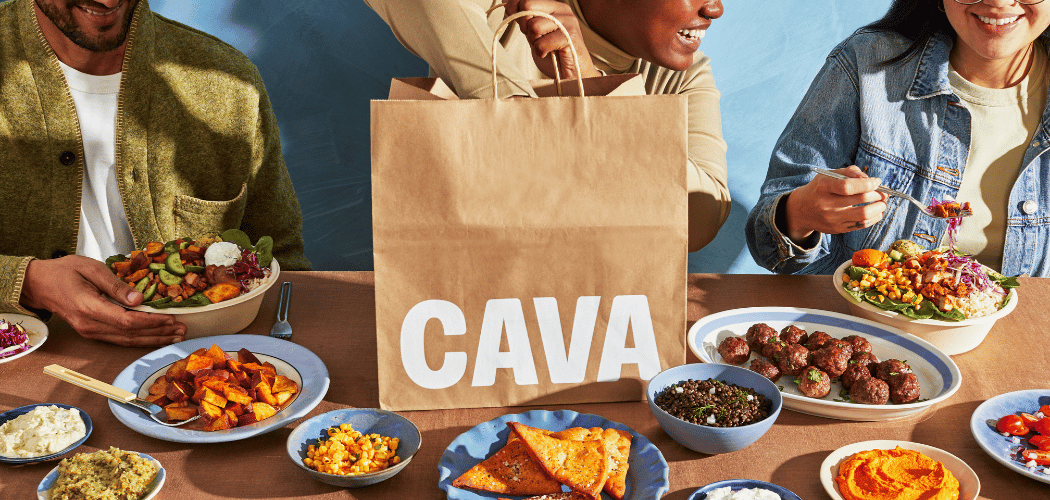And what can loyalty marketers do to adapt? In May 2020 marketers across every sector are facing unprecedented challenges, in every market, in every sector and in every discipline, with every audience. Loyalty marketers are no different. Loyalty programmes are trying to help their members and the populations of the countries they operate in, trying to do the right thing, whilst at the same time trying to support the brands and businesses whose customers they were designed to retain and engage, protect their membership and plan for the future. They are also faced with technical challenges, financial challenges, and in many cases dramatic reductions in team and resource capabilities.
By: Charlie Hills
In Great Britain we have seen some wonderful examples of how Loyalty Programmes are helping the British people in these difficult times. And we commissioned some new research to see what impact COVID-19 is having on Brits perception of the importance and impact of Loyalty programmes.
1) Offering new types of rewards to help people stay home, stay safe, and feel better
VeryMe Rewards from Vodafone is a programme designed to offer its members rewards that they really love. The programme normally offers its members great cinema offers (such as 2 tickets for £7 with Vue cinemas), free coffees from Costa Coffee, treats from much-loved British high street staples such as Greggs, or sweet treats from Thorntons. But what can you do when what your members love is no longer safe or available? Vodafone reacted very quickly to the changing landscape — quickly switching to rewards that can safely be enjoyed at home and that make lockdown that little bit better. VeryMe members can now get unlimited access to free 4-week online courses with Shaw Academy, their chance to study a range of subjects, such as marketing, photography, tech, and design. They can also get free 30 day subscriptions to Magzter, a global digital magazine newsstand with over 5,000 titles. For the most creative types, the programme now offers 20% off Make Your Own Games Kit at Prezzybox. Members can make their own Cardboard Karaoke or Desktop Arcade, or even make their own Lie Detectors.
Across the UK programmes have moved fast. Sky VIP has a new range of VIP At Home Rewards designed to engage members, and even travel programmes such as Accor Live Limitless have adapted — Accor Live Limitless at Home is offering a range of fantastic experiences — check out the cookie recipe and video tutorial from Quentin Lechat!
2) Helping members to help others
In new research conducted by Mando-Connect and YouGov in the UK in Jan 2020 we learned that 28% of Brits wanted loyalty programmes to offer rewards that supported good causes or helped the environment. It was the 3rd most appealing type of desired reward (after those that offered great value and those that were treats). We hypothesise that, in the current situation, the number is now far higher than 28%.
Loyalty Programmes have again leapt into action. For Good Causes is working with programmes to enable their members to donate their points to good causes. In April 2020, the average donation was £5.79 and Brits donated to 632 charities. BPme is a great example of a brand promoting that its members donate their points using this method. Other programmes such as Marks & Spencer’s Sparks or The Co-Op’s loyalty programme have a really long history of supporting good causes and are continuing to do so. Sparks has added new COVID-19 charities to its supported charities: it helped set up the Neighbourly Community Fund to help local charities support the most vulnerable, it added the National Emergencies Trust Coronavirus Appeal, and the NHS Charities Together to the portfolio of supported charities.
Programmes like Nectar have gone even further. Sainsbury’s matched all customer donations made to Comic Relief and BBC Children in Need in store and online between 9 April and 1 May as part of the charities’ campaign to raise funds to help those in need as a result of COVID-19. Nectar points could also be donated as part of the activity.
3) Changing the rules so that members don’t lose out
The third and final trend we are seeing in Loyalty Programmes’ response in the UK is one not to be over looked. Programmes are taking a look at how the current situation is impacting members and many are changing the rules — what they offer, how they offer, and when — and updating their approaches to keep members engaged.
There are simple, but important changes at work: Marks & Spencer’s Sparks now gives members 90 days not 30 days to add their points balances (and at the same times asks members to understand that, during this period, they won’t see as many personalised offers as they are used to). The British Airways Executive Club is still encouraging sign up: “Join the Executive Club for free — save for 14 sunny days instead of a rainy one” and it is currently promoting how members can earn Avios in ways other than travelling. Programmes like ODEON Limitless are keeping members engaged with Blogs and Content, whilst they can’t go to the cinema.
We were so inspired by these great trends that we conducted some new research with YouGov. We wanted to find out what Brits think of loyalty programmes in these COVID-19 times and what impact initiatives like the above are having. Our new research suggests that Loyalty Programmes are more important to Brits now, than they were pre-COVID-19.
We researched 8 key indicators of Loyalty Programme importance and engagement in Britain before and during COVID-19 Lockdown (using YouGov Profiles GB 19-04-2020 vs 05-01-2020).
- I think loyalty programmes are a great way for brands and businesses to reward their customers (Agree)
- I think all brands should offer loyalty programmes (Agree)
- I am more loyal to brands that I am a loyalty member of (Agree)
- I spend more money with brands, when I am a member of their loyalty programme (Agree)
- I feel more emotionally connected to brands when I am a member of their loyalty programme (Agree)
- I am more likely to recommend brands when I am a member of their loyalty programme (Agree)
- I subscribe to loyalty programmes each time I’m given the opportunity (Agree)
- Are you currently subscribed to a Loyalty programme (Yes/No)
How did Brits respond?

What we can see is a general upwards shift in the appeal and impact of loyalty programme membership on Brits in April 2020 vs Jan 2020. Loyalty Programmes have got slightly more appealing since lockdown and slightly more positively impactful on behaviour and attitude. 34% of Brits said that membership makes them more loyal now vs 31% pre-lockdown. 38% think all brands should offer a loyalty programme now vs 34% in January. 33% say that being a member makes them spend more with a brand vs 31% in January. These shifts are small but important. The only metric where we see a negative pattern is in actual membership: 73% of Brits say they are currently subscribed to at least one programme vs 79% in January.
When we looked at the results by age, similar trends to those observed in our original white paper research emerged. The 18-24s are still significantly less likely to be members of programmes (55% are members of at least one programme vs 73% GB average). Yet, whilst their membership is smaller, the impact of Loyalty Programmes to positively influence them is greater (39% are more loyal, 35% will spend more, 39% will recommend more, and 33% feel more emotionally connected).
It is too early to tell if these trends are significant, or if they will continue, but we have found these positive upward trends, combined with the case studies of what loyalty programmes are doing to help people inspiring. We hope you do too!
Charlie Hills is a featured contributor to the Wise Marketer and is the Managing Director and Head of Strategy at Mando-Connect.




